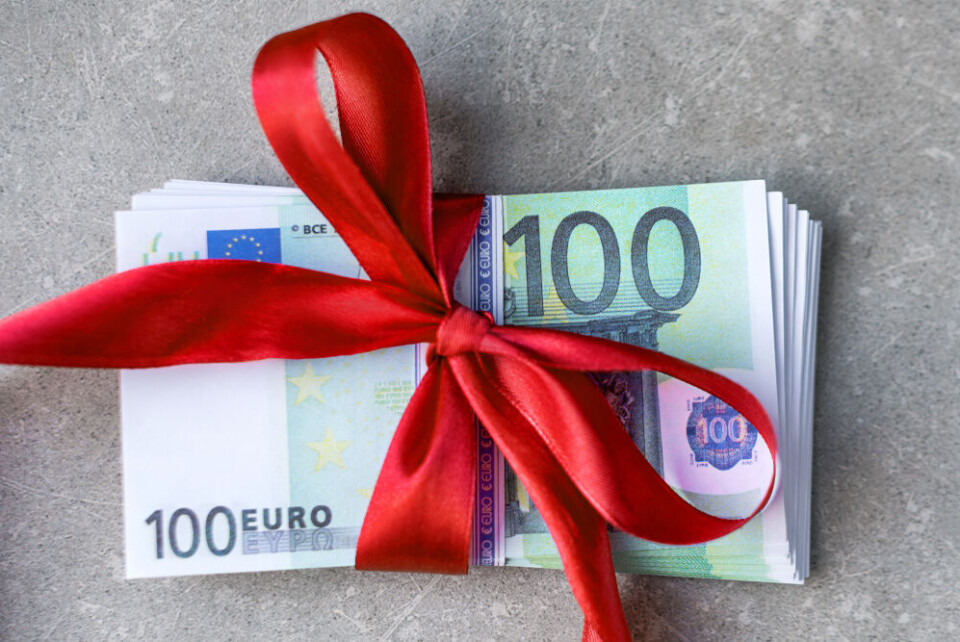-
New anti-cruise passenger tax could affect UK-France ferries
The proposed amendment ‘does not clearly distinguish cruise ships from ferries’, says minister
-
French second homes: How capital gains tax abatement works (2025)
The tax exemption at sale depends on the time elapsed since the property was purchased
-
French second homes: tax-exemption time for capital gains may be reduced
MPs voted the bill through in a bid to improve housing market in high-demand areas
How can I lower the ‘gift’ tax on a present to a relative?
There are certain ways to reduce the tax you need to pay

Reader question: I live in France and plan to give a large money gift to my nephew, who is a student here. Should I pay the gift tax?
Gift tax (droits de donation) may be due on any money or valuables given outside special occasions, or gifts on such occasions that are disproportionately valuable.
This does not apply to money given to a direct-line descendant or ancestor to help them with essentials because they are in need, which is seen differently for tax purposes.
The tax allowance (renewable after 15 years) and rates depend on the nature of the relationship.
For nephews, there is an allowance of €7,967 after which tax is payable at 55%.
It is possible, however, for them to benefit from a higher allowance for dons familiaux de sommes d’argent, if you have no children or grandchildren, you are under 80, and the nephew is an adult.
This latter allowance, which can be combined with the other, is €31,865.
Your nephew should declare the gift and the basic rule is he should also pay any tax, but it is beneficial for the giver to pay and this is not seen as an additional taxable gift.
For example, if you give €10,000, he will pay tax on €2,033 of this at 55% and will end up with €8,881.85. If you give €9,000 and pay the tax (55% x €1,033 = €568.15), it will cost you €9,568.18 and he will keep the €9,000.
























